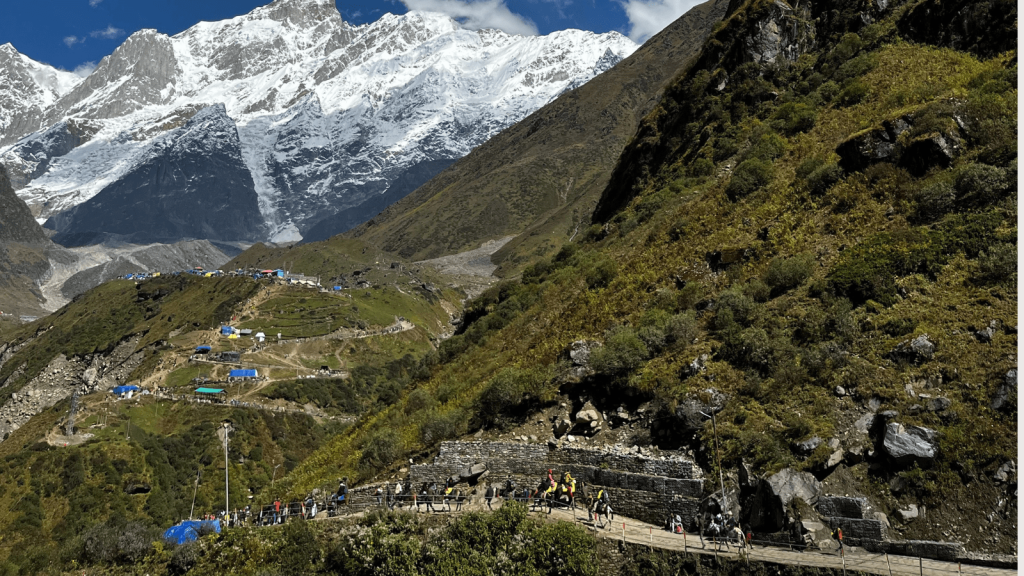In a world filled with busy schedules and constant demands, taking care of our health often takes a backseat. However, staying fit and healthy is essential for leading a fulfilling and vibrant life. The good news is that achieving optimal well-being doesn't have to be complicated or overwhelming. By making small, sustainable changes to our lifestyle, we can embark on a journey towards a healthier and happier version of ourselves.
In this blog post, we will explore five simple yet effective ways to stay fit and healthy. These strategies are easy to implement and can have a significant impact on your overall well-being, both physically and mentally.
Five Simple Ways to Stay Fit and Healthy
Move Your Body Regularly
Regular physical activity is vital for staying fit and healthy. Find activities you enjoy, such as walking, dancing, cycling, or swimming, and aim for at least 30 minutes of moderate-intensity exercise most days of the week. Physical activity boosts your cardiovascular health, strengthens muscles and bones, improves mood, and helps maintain a healthy weight. Consider incorporating exercise into your daily routine, such as taking the stairs instead of the elevator, going for a walk during lunch breaks, or trying out a new fitness class.
Eat a Balanced Diet
Maintaining a balanced diet is crucial for providing your body with the nutrients it needs to function optimally. Focus on consuming a variety of whole foods, including fruits, vegetables, whole grains, lean proteins, and healthy fats. Minimize the intake of processed and sugary foods, as they can lead to weight gain and negatively impact your health. Practice portion control and mindful eating by listening to your body's hunger and fullness cues. Stay hydrated by drinking an adequate amount of water throughout the day, and limit the consumption of sugary drinks.
Prioritize Quality Sleep
Getting enough sleep is often overlooked but is essential for overall health and well-being. Aim for 7-9 hours of quality sleep each night. Create a relaxing bedtime routine by avoiding screens before bed, keeping your sleep environment cool and comfortable, and engaging in calming activities such as reading or meditation. Sufficient sleep allows your body to repair and recharge, improves cognitive function, enhances mood, and boosts your immune system.
Manage Stress Effectively
Chronic stress can have a detrimental impact on both your physical and mental health. Find healthy ways to manage stress, such as practicing relaxation techniques like deep breathing, meditation, or yoga. Engage in activities you enjoy, spend time with loved ones, and prioritize self-care. Find a healthy work-life balance by setting boundaries and making time for hobbies and activities that bring you joy. Remember to take breaks throughout the day to recharge and practice mindfulness to stay present in the moment.
Cultivate a Positive Mindset
Your mindset plays a significant role in your overall well-being. Cultivate a positive outlook by practicing gratitude, focusing on your strengths, and challenging negative thoughts. Surround yourself with supportive and positive people who uplift and motivate you. Engage in activities that promote self-confidence and self-esteem, such as pursuing hobbies, setting and achieving goals, and celebrating your successes. Remember to be kind to yourself and embrace self-compassion, as this will contribute to a healthier and happier life.
Importance of Fitness in Hiking and Adventures
Stay Energized: Being fit allows you to hike longer distances and tackle challenging trails without feeling tired too quickly. Regular exercise improves your cardiovascular endurance, making it easier for your body to supply oxygen and nutrients to your muscles during physical exertion. This means you can keep going for longer periods, enjoying the beauty of nature without feeling completely exhausted.
Carry Your Gear: Fitness plays a crucial role in your ability to carry a backpack and navigate steep slopes during hiking and adventures. Strengthening your muscles through exercises like weightlifting or resistance training helps build the necessary upper body and core strength to support the weight of your backpack. This reduces strain on your back and allows you to move with greater ease and comfort.
Keep Going: Regular exercise, such as jogging, cycling, or swimming, improves your cardiovascular health. This means your heart and lungs become more efficient at delivering oxygen and nutrients to your body's tissues. When hiking or engaging in adventurous activities, this increased cardiovascular fitness helps you maintain a steady pace, sustain effort for longer periods, and climb hills or traverse challenging terrains with less difficulty.
Stay Injury-Free: Fitness training focuses on strengthening muscles and joints, which helps reduce the risk of common hiking injuries like sprains or strains. When your muscles are stronger, they provide better support to your joints, minimizing the chances of twisting or turning them in precarious positions. Additionally, exercises that improve flexibility and balance, such as stretching or yoga, can further enhance joint stability and reduce the likelihood of accidents or falls.
Move with Ease: Maintaining a good level of fitness ensures that your body weight is distributed evenly. When you're in shape and have a healthy weight, your joints experience less strain and pressure during long hikes. This reduces the risk of joint pain or discomfort, allowing you to move with greater ease and enjoy the journey without being hindered by unnecessary physical strain.
Stay Balanced: Fitness exercises that improve your balance, such as standing on one leg or practicing yoga poses, enhance your stability and coordination. When hiking on uneven surfaces or navigating rocky terrains, having good balance becomes crucial to prevent slips or falls. Improved balance allows you to react quickly to changes in the terrain, maintaining your stability and reducing the risk of accidents.
Recover Faster: Regular exercise not only strengthens your muscles but also improves your body's ability to recover from physical exertion. When you're fit, your body adapts more efficiently to the demands of hiking or adventurous activities. This means your muscles repair and rebuild faster, reducing muscle soreness and fatigue. Consequently, you'll bounce back more quickly after intense hikes, allowing you to enjoy subsequent adventures sooner.
Enjoy the Experience: Fitness goes beyond physical benefits; it has a positive impact on your mental well-being too. Regular exercise releases endorphins, which are natural mood enhancers, and reduces stress levels. When you're in a better mental state, you can fully immerse yourself in the experience of hiking and adventuring. It enhances your enjoyment, helps you appreciate nature, and allows you to fully embrace the thrill and beauty of outdoor exploration.
Understanding BMI and Its Benefits for Outdoor Adventures
When it comes to maintaining fitness, understanding your body mass index (BMI) is a useful tool. BMI is a calculation that takes into account your height and weight to determine whether you are underweight, normal weight, overweight, or obese. In this blog post, we will explore how BMI relates to overall fitness and discuss its specific benefits when it comes to trekking adventures.
BMI and Fitness
BMI provides a general indication of your overall body composition and can be a starting point for assessing your fitness level. While it doesn't take into account factors such as muscle mass or body fat distribution, it is a useful screening tool for identifying potential health risks related to weight.
BMI and Trekking
Trekking is a physically demanding activity that requires endurance, strength, and balance. BMI can play a role in trekking for several reasons:
a. Load Carrying Capacity: Trekking often involves carrying a backpack or equipment. A higher BMI may indicate a greater capacity for carrying weight comfortably, especially when navigating challenging terrains.
b. Endurance and Stamina: Trekking requires sustained physical effort over extended periods. Maintaining a healthy BMI can contribute to improved endurance and stamina, allowing you to trek for longer distances without feeling overly fatigued.
c. Joint Health: Trekking can put stress on your joints, especially when traversing uneven or steep terrain. Maintaining a healthy BMI helps reduce excessive strain on your joints, minimizing the risk of injuries and enhancing your trekking experience.
d. Climbing Efficiency: Trekking often involves uphill sections that demand additional effort. A healthy BMI can contribute to improved climbing efficiency, making it easier to ascend slopes and conquer challenging trails.
Balancing BMI and Fitness
While BMI provides a helpful guideline, it's important to remember that it is not the sole determinant of fitness. Body composition, muscle strength, cardiovascular health, and flexibility are equally important factors to consider. Therefore, it's essential to engage in regular exercise, including strength training, cardiovascular activities, and flexibility exercises, to complement your BMI.
Other Factors to Consider
When preparing for a trek, it's crucial to focus on overall fitness rather than solely relying on BMI. Consider these additional factors:
a. Cardiovascular Fitness: Trekking involves continuous movement and varying levels of intensity. Engaging in activities like jogging, cycling, or swimming can improve your cardiovascular fitness, enabling you to tackle long and demanding treks more comfortably.
b. Strength Training: Building strength in your lower body, core, and upper body can enhance your trekking performance. Incorporate exercises like squats, lunges, planks, and upper body resistance training to develop muscular endurance and stability.
c. Flexibility and Balance: Stretching exercises and activities like yoga can improve flexibility and balance, helping you navigate challenging terrains and reduce the risk of injuries.
CONCLUSION
Staying fit and healthy doesn't have to be complicated. By implementing these five simple strategies into your daily routine, you can improve your overall well-being and enjoy a happier life. Remember to listen to your body, make choices that align with your goals, and be consistent in your efforts. Small changes over time can lead to significant improvements in your fitness and overall health. Embrace a balanced lifestyle that includes regular physical activity, a nutritious diet, quality sleep, stress management, and a positive mindset. Take the first step today and embark on your journey to a fit and healthy life filled with vitality and joy.









